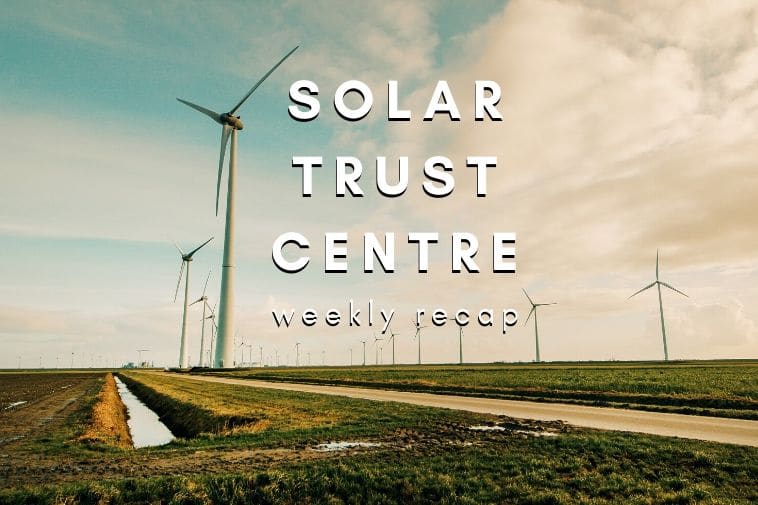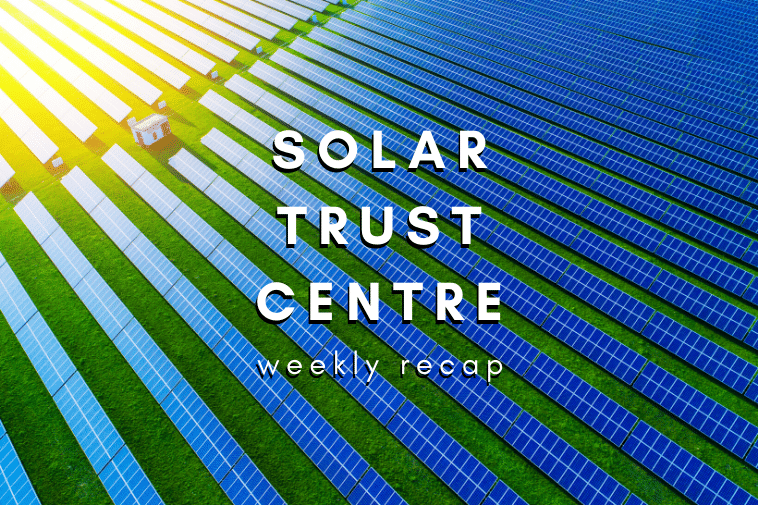This Week in Solar: Australian Renewable Energy Transition
1. Deciding to Go Solar: Why Solar Power System Quality Matters There isn’t just one type of “solar power system.” As with anything, there are a...
1 min read
![]() Solar Trust Centre Team
:
May 4, 2020 7:30:00 PM
Solar Trust Centre Team
:
May 4, 2020 7:30:00 PM
Rooftop solar is expected to contribute 4 gigawatts of of renewable energy by 2030, however analysis suggests current federal policies will lead to a price rise after 2030 but a more ambitious target would keep bills lower.
Australia could get 90% of its electricity from renewable energy by 2040 without an increase in power prices
The Australian Renewable Energy Agency says that on-site solar electrolysis is not just the most cost-effective way of developing a domestic and export hydrogen economy, but perhaps the only way.
“Australia has the technical capability to operate a power system where three-quarters of our energy at times comes from renewable energy resources,” Audrey Zibelman, AEMO’s chief executive, said.
Such a leap in renewable power on the grid could be managed by changes in market rules and regulations, the Australian Energy Market Operator, which manages the nation’s energy system, has said in a new study.
The best LCOE for solar in Australia is $A40/MWh and for wind it is $A50/MWh, according to BNEF.
“In Australia, renewables are by far the cheapest new source of bulk generation,” says the Sydney-based BNEF analyst Lara Panjkov.
One of the pioneering schools in Australia to commit to 100% renewable electricity, Presbyterian Ladies’ College (PLC) has raised the bar for renewables and will now source 130% of its electricity needs from renewable energy.
Always a rivalled contender for other states, South Australia is continuing its embracement of renewable energy as it remains as a leader of wind and solar in 2020. It’s expected that by 2024, SA’s renewables could contribute up to 87 per cent of its overall electricity generation.
If this is achieved, it will put the state in a prime position towards reaching the government-backed goal of establishing net 100 per cent renewables by 2030.
Western Australia is in the box seat to become the home of Australia’s biggest green hydrogen plant after an initial $300 million investment was secured for its first phase of construction. The project is being developed by Perth-based Infinite Blue Energy, which is aiming to have the plant operational by 2022.

1. Deciding to Go Solar: Why Solar Power System Quality Matters There isn’t just one type of “solar power system.” As with anything, there are a...
1. What Needs to Happen With My Metering? Once you get a solar system installed, you’ll probably still have questions. Some of those might be related...

1. Should I get an on-site inspection before buying solar panels? One of the most important things to do before buying solar panels is to have an...